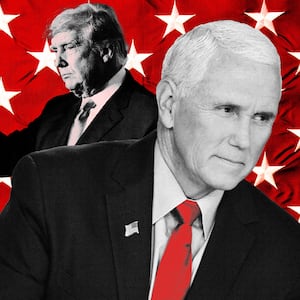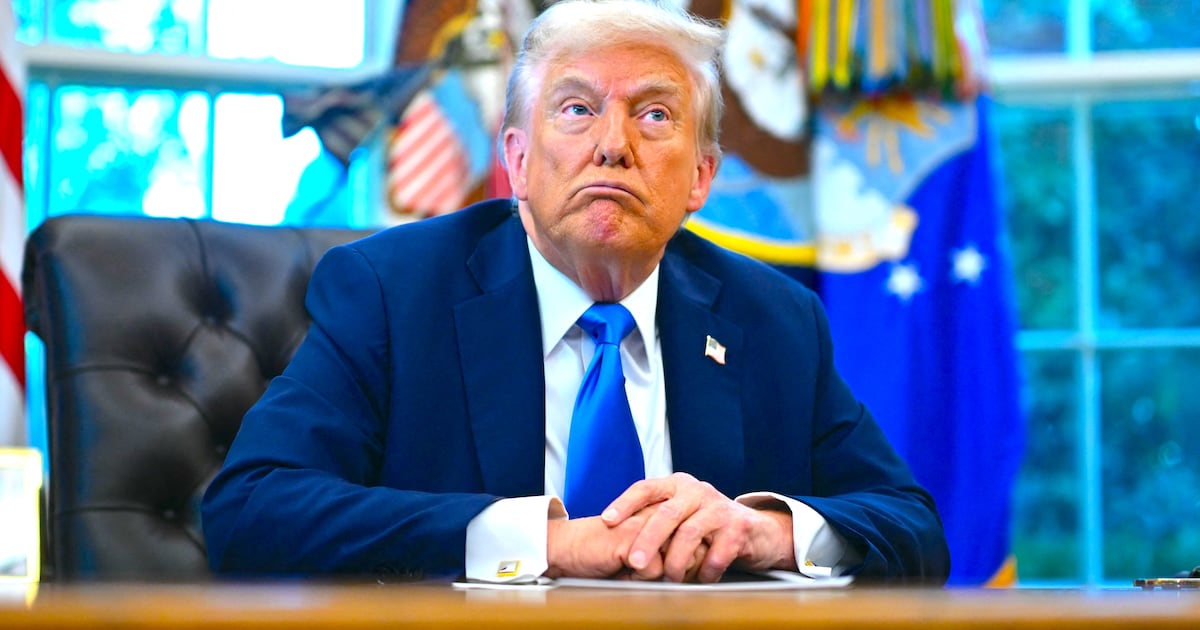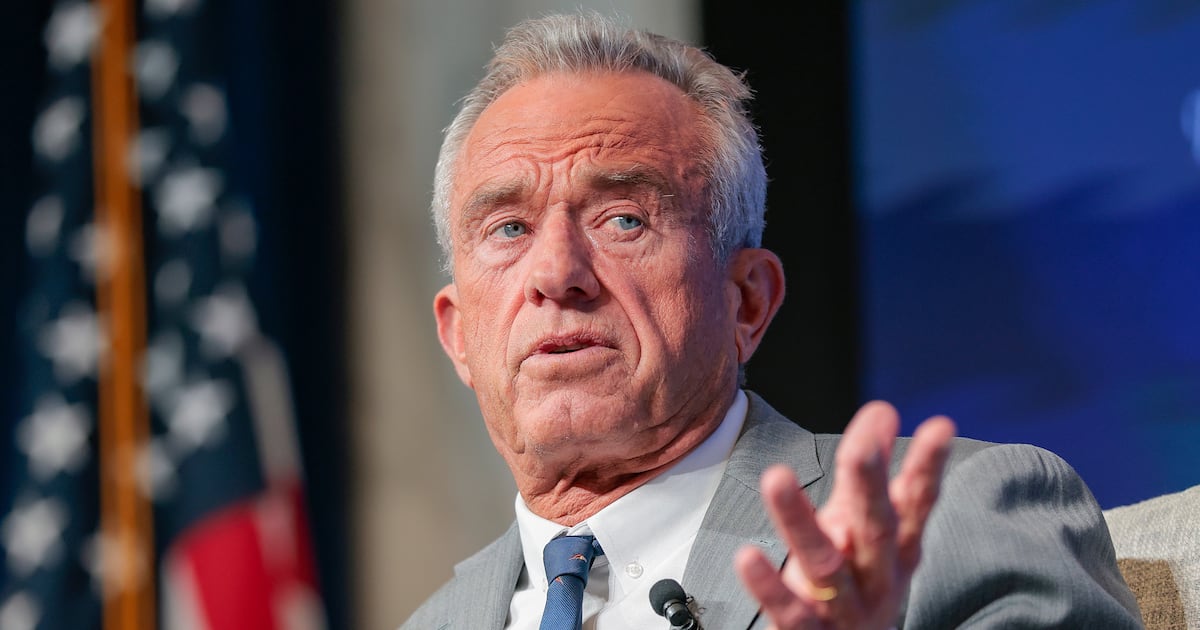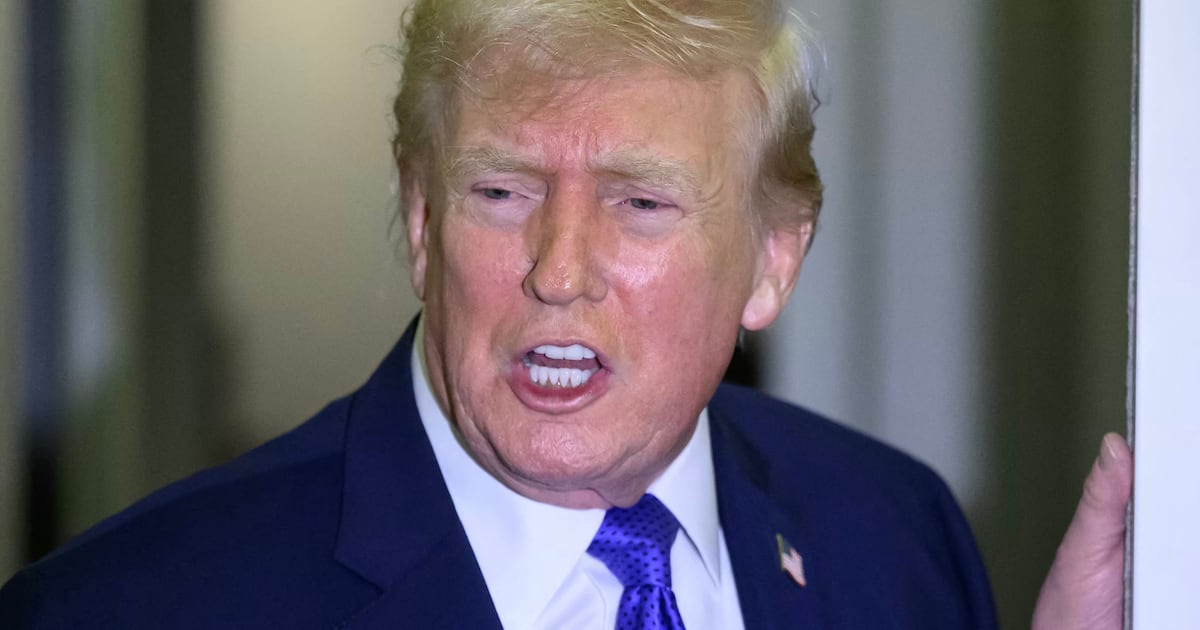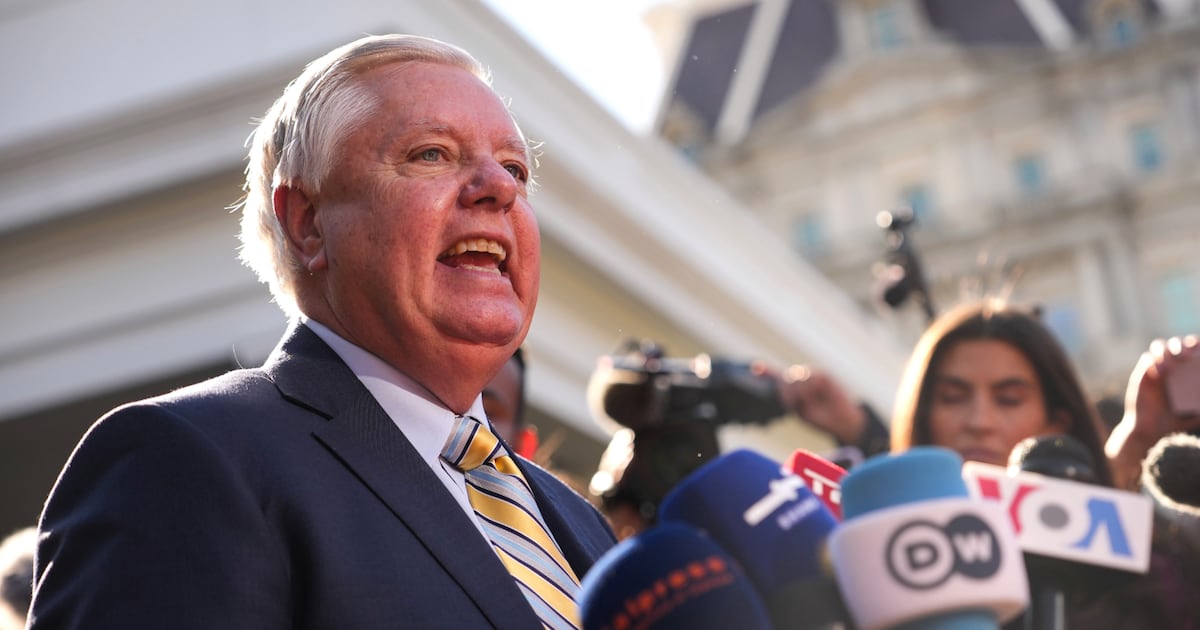Voters helped beat back creeping authoritarianism in last week’s midterm elections. That’s worth celebrating. But we also need to examine why Democrats and those who are fighting to preserve democracy in America did not do better.
It matters for 2024. And it matters for the long-term future of the country.
Yes, many prominent election deniers lost their races, but a disquieting number of them won at both the national and local levels. And the GOP supermajority on the Supreme Court isn’t going anywhere—which means more fundamental rights are threatened, and partisans will have friends in high places should they want to distort election results in the future.
We must look at the would-be contenders to carry the GOP banner during the 2024 presidential campaign and understand that, like the last Republican president, they are drawn like moths to the authoritarian flame. Their goal is to incinerate checks on presidential power and to suppress the will of all those who may oppose them.
When the euphoria of stopping the “red wave” fades, we’ll have to accept the fact that the 2022 midterms, in the end, affirmed that we remain a deeply divided country.
The House and the Senate are now left roughly evenly divided between the party that favors majority rule and the one still fighting for minority rule. So, too, are statehouses. While many proponents of the Big Lie lost, and Donald Trump was revealed as toxic to many of those who defended him, hundreds of others—including Sen. Ron Johnson and Rep. Marjorie Taylor Greene—retained or gained high office. The GOP also made important inroads in once deep blue states like New York. And many of the victories celebrated by Democrats were excruciatingly close. Neither side won a mandate
In a system that already gives a constitutional advantage to a minority from less populous states, many clearly want to compound that unfair advantage to protect them from the rise of a new, more diverse American majority. While backlash against the Supreme Court’s Dobbs decision and the clarity with which President Joe Biden framed MAGA Republican threats against democracy were politically effective—much more work remains to be done.
Furthermore, it is essential to understand that the efforts to weaken our democracy are not always as obvious as Supreme Court decisions like Dobbs that directly and clearly impact every woman in our society. Nor is moral clarity always as plain condemning angry mobs assaulting the Capitol.

Abortion rights demonstrator Elizabeth White leads a chant in response to the Dobbs v Jackson Women's Health Organization ruling in front of the U.S. Supreme Court on June 24, 2022 in Washington, DC.
Brandon Bell/Getty ImagesSome of SCOTUS’ decisions will address arcane issues—like the ability of legislatures to determine which votes in a presidential election are counted and which may be ignored. Some will be efforts to block funding for departments and functions that are vital to protecting the integrity of our government. And some will be subtler still, like ongoing GOP efforts to make it easier to fire government officials who choose to honor their oaths of office and serve the Constitution rather than follow the directives of one politician or his or her party.
My new book, American Resistance: The Inside Story of How the Deep State Saved the Nation, focuses on this last effort in particular.
Gutting the protections provided us by public servants who place country above party is among the most insidious of the efforts to weaken our democracy and make us vulnerable to rogue rulers. My book tells the story of how dedicated officials—including many Trump appointees and Republicans—placed the rule of law and the Constitution first, thus foiling the plans of a president who was even more incompetent and deranged than many of us understood at the time. It celebrates their heroism and their sacrifices.
But it also concludes that Trump and other leaders of the GOP—seeing the impediment to their plans created by what Rep. Jamie Raskin called “constitutional patriots”—are committed themselves to ridding the government of these vital national assets and replacing them with yes men and women—stooges who will ensure the power of the person in the Oval Office and those closest to him is unchecked.
The entire concept of the “deep state” conspiracy—popularized in this country during Trump’s 2016 campaign—was created to begin the process of neutralizing independent, law-abiding government professionals. It was meant to discredit those who adhered to values, laws or regulations that might somehow create an obstacle for Trump (or his successors) to advance an agenda that was often illegal, immoral, unconstitutional or contrary to American interests.
The book—based on over 100 interviews with Trump administration officials and senior level Washington experts—reveals how time and again, dedicated civil servants, foreign service officers, intelligence officers, military officers and experienced political appointees stopped, derailed or blunted the most damaging initiatives of the president and his aides.

Former President Donald Trump speaks at the Mar-a-Lago Club in Palm Beach, Florida, on November 15, 2022.
Alon Skuy/AFP via Getty IMagesThis was not insubordination. They were doing precisely what the law and their oaths of office required. From averting war to undoing efforts to gut our alliances, from delaying and diluting the Muslim ban to ensuring the security of the 2020 elections, from addressing the realities of COVID the president wanted to deny to blocking an effort to blackmail the newly elected president of Ukraine—they kept the Trump era from being even more chaotic and damaging than it was.
Late in his administration, Trump and his acolytes waged a systematic war against these patriotic Americans. Many were fired. Others were attacked publicly. They were replaced by MAGA functionaries, sometimes without the benefit of a Senate confirmation. And a new plan was introduced, called Schedule F, to enable the president to fire others—perhaps as many 50,000 officials.
President Biden undid that plan. But today, Trump, again a candidate, is joined by other leaders of the GOP who want to restore it. They talk, again, of the power of the deep state, tying it to the Big Lie of 2020 election denial. They frame it as a necessary step, building on the damage done by a much older big lie told by Ronald Reagan—who evangelized that government was the enemy, the source of problems, not the solution.
The line between Reagan and Trump is stark. If government is the enemy, then ending government programs that help people is ok—even if it’s only to justify lowering taxes for the richest Americans. And if you want weak government, then you don’t care much about the quality of elected officials, you just need their political loyalty. That’s how you end up with incompetents and lunatics like Herschel Walker or Lauren Boebert as GOP candidates for Congress.

Congresswoman Lauren Boebert of Colorado's Third Congressional District makes a campaign stop to speak with supporters at Wild Beaver Mountain Man Emporium on Oct. 4, 2022 in Creede, Colorado.
RJ Sangosti/MediaNews Group/The Denver Post via Getty ImagesBut if these ideas about government spread far enough, it’s that much harder to attract the kind of public servants upon which this republic has long depended— people who selflessly give up careers that could be more profitable and comfortable to sacrifice on behalf of the country, sometimes putting their own lives at great risk.
I have spent my career in Washington. In over 40 years, I have met many hundreds of government officials in all lines of work. I’ve learned that, during the Trump years, many of them served as the last and most effective guardrail against an unhinged and profoundly dangerous president. These people are the rule, not the exception, in public service. They are Republicans, Democrats, independents, and the avowedly apolitical. They preserve, protect, and defend the country often in anonymity, with very little in the way of public appreciation.
They recognize that in a democracy, they represent the will of the people as it is manifested in our laws, the decisions of the Congress and the courts, and their obligation to serve the interests of the ultimate decision-makers, the final authority…the voters.
That role has never been more important than today. Last week’s election represents an important victory against some enemies of democracy. But the greater contest with minority rule and authoritarianism in America lies ahead.
At each and every level that Trump and his authoritarian-minded acolytes threaten the fundamental principles on which the United States was founded, we must identify the threat, fight to repel it, and in the end preserve what we value most. Fortunately, we will have dedicated public servants doing the same, as well as trusted political leaders who are committed to the same goals.
It is this coalition upon which the future of our democracy will ultimately depend. Last week’s election showed the strength of that coalition, now we must all work to ensure its long-term success.


